Tattoos often carry deep personal meaning: they can mark a memory, a relationship, or a phase of life. But sometimes, those same tattoos become reminders people no longer want to hold onto. It’s not always about regret; sometimes it’s about healing, growth, or simply moving forward. Thankfully, with modern technology, tattoo removal has become more effective and accessible than ever.
One person shared their emotional journey of getting a face tattoo removed, a decision that’s as brave as it is vulnerable. In a heartfelt video, they opened up about the physical pain, emotional weight, and long process ahead. Many praised their honesty and courage, saying it’s a powerful reminder that starting over is never too late.
The author opened up about their laser removal journey to erase the face tattoo

Image credits: ultimatebykomi
They didn’t hold back, sharing every detail, including how their family has been emotionally affected too
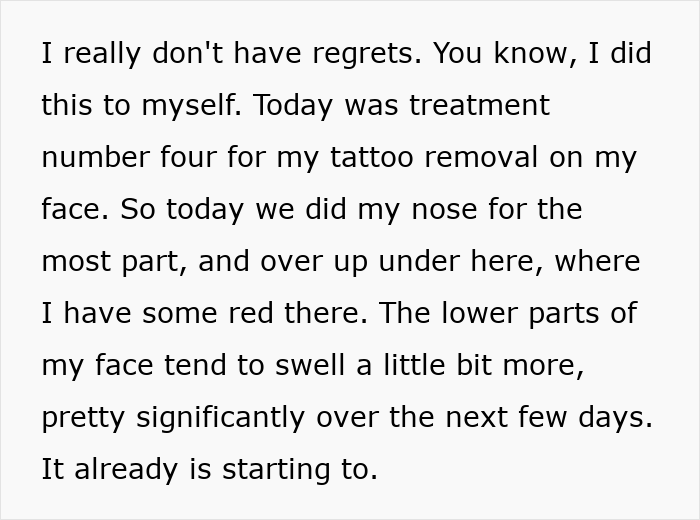
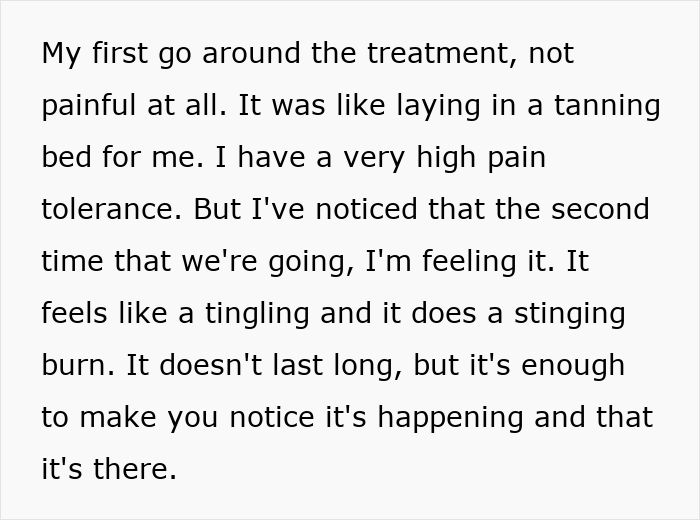
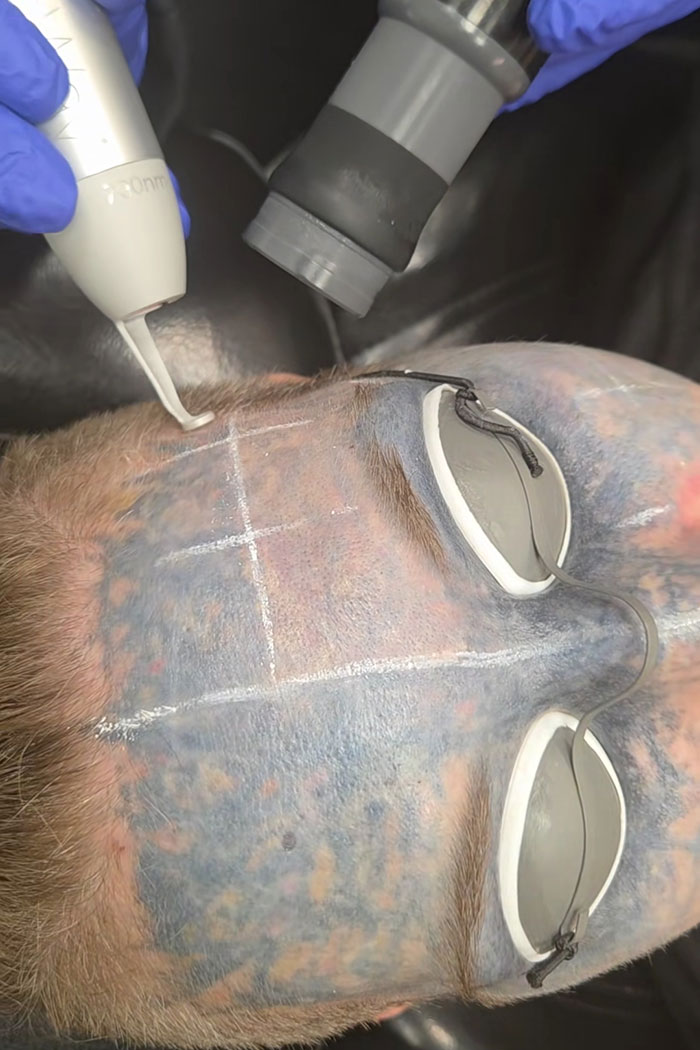
Image credits: alkaline.erudite
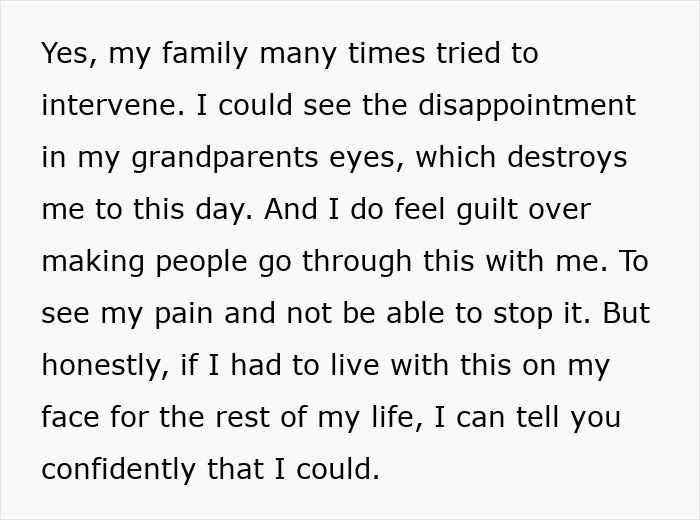
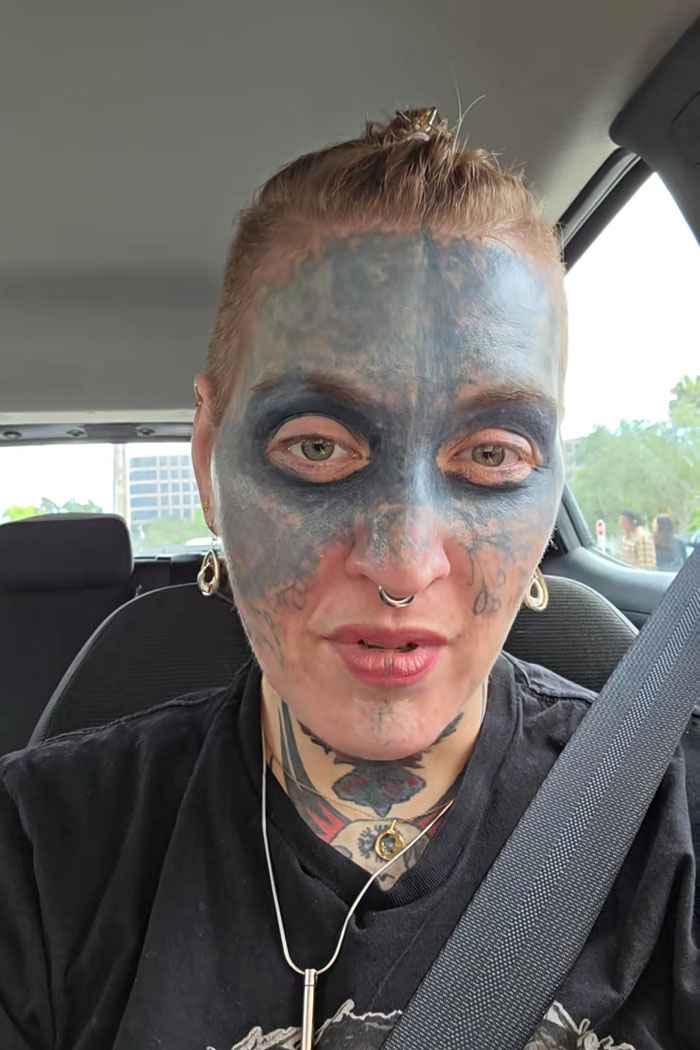
Image credits: alkaline.erudite
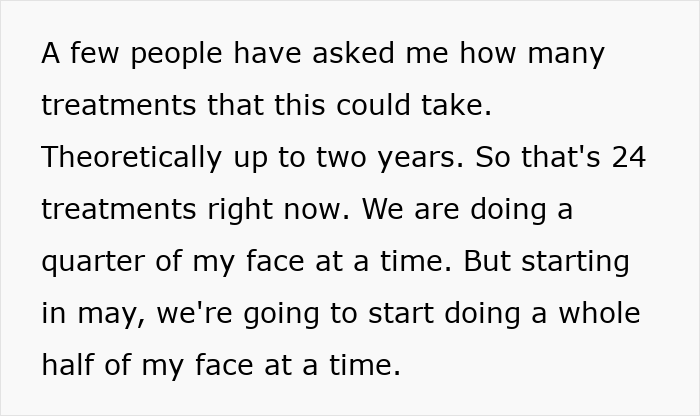
Image credits: ultimatebykomi
You can watch the author’s video here:
@ultimatebykomi I did this to myself🫢 @𝚂𝚒𝚕𝚟𝟹𝚛 𝚂𝚙𝟹𝚌𝚝𝟹𝚛🎨 #facetattoo #tattooremoval #tattolaser #regrets #regretmytattoo ♬ Suspenseful and tense orchestra(1318015) – SoLaTiDo
Tattoo removal is a lengthy, costly, and deeply emotional journey
When people say tattoos are “forever,” they aren’t exaggerating. Once the ink settles beneath your skin, it becomes a part of you, quite literally. Your body’s immune system constantly works to flush out foreign particles, but tattoo ink is made up of molecules too large to be broken down naturally. These ink pigments stay locked within your skin cells, giving tattoos their longevity. And while they can be removed today thanks to technology, the process is lengthy, expensive, and far from simple.
Every tattoo removal method operates a little differently, but the goal remains the same: to break down those stubborn ink particles into pieces small enough for your body to clear away. Laser treatments, chemical methods, and abrasion-based techniques all target the pigment layer beneath the skin. Once fragmented, your immune system finally gets a chance to flush them out over time. It’s not instant, each session works progressively until the tattoo fades or disappears.
Tattoo removal isn’t a one-and-done procedure, it’s a journey that requires patience, commitment, and quite often, a significant financial investment. Depending on the size, color, and age of the tattoo, multiple sessions are required, sometimes stretching across months. To understand this process better, Bored Panda spoke with Harkesh Rajpoot, a seasoned tattoo artist with over a decade of experience. “Tattoo removal can be quite challenging and expensive,” he shared. “But for some, it’s worth every bit of the effort.”
With 33K followers on Instagram and a background in mehndi artistry, Harkesh has seen countless tattoo stories unfold. “People come in wanting tattoos removed for all kinds of reasons,” he says. “Sometimes they simply don’t like their tattoo anymore, it could be the design, the placement, or even the meaning behind it.” Over time, people evolve, and so do their tastes. What once felt personal and powerful might not resonate years later.
Another major reason people seek tattoo removal is professional expectation. “Your job might not allow visible tattoos, especially if you’re in client-facing roles like banking, hospitality, or law,” Harkesh explains. Even today, certain workplaces maintain strict appearance guidelines, making tattoos a point of contention. In these cases, removal becomes less about preference and more about necessity, an effort to align personal expression with career demands.
Sometimes, it’s not about aesthetics or professionalism, it’s emotional. “For some, a tattoo reminds them of a person or a period in life that caused deep pain,” Harkesh says softly. “It could be an ex, a lost friendship, or a memory they no longer wish to carry.” In such situations, tattoo removal becomes more than a cosmetic choice; it’s a form of healing. Letting go of the ink can feel like reclaiming control over one’s past and peace of mind.
Laser removal is a precise and effective method for breaking down ink particles
There are several ways to remove tattoos today, though laser removal remains the most widely used and effective. It works by emitting pulses of light energy that shatter ink particles beneath the skin. Over time, the body naturally eliminates these fragments. Depending on the color and depth of the ink, different lasers are used for optimal results.
Apart from lasers, there are traditional methods like salabrasion and dermabrasion, both of which physically remove layers of skin containing ink. Salabrasion involves using salt and friction to scrape away pigment, while dermabrasion employs a mechanical tool to sand the skin’s surface. Though less common now due to advancements in laser technology, these techniques still exist. However, they often carry a higher risk of scarring and pain.
In recent years, tattoo removal creams have entered the market, promising an easier, cheaper alternative. These products claim to fade ink using peeling agents and chemical exfoliants. “But I don’t really recommend them,” Harkesh admits. “They’re unpredictable and can damage your skin more than they help.” While some users report light fading, most professionals agree that creams rarely deliver the dramatic results seen with laser treatments.
Ultimately, removing a tattoo is an intensely personal decision, one that involves both emotional and physical considerations. “I understand why people do it,” says Harkesh. “Sometimes it’s about growth, sometimes closure.” But he also advises careful thought before committing. “Think it through,” he adds, “because the journey is time-consuming, costly, and not without pain. But if it helps you feel free, then it’s absolutely worth it.”
The author’s tattoo removal journey is certainly an emotional and eye-opening one, showing just how much thought, patience, and resilience goes into the process. From understanding the technicalities to managing the physical and emotional aspects, it’s a lot more than just a cosmetic change. Do you have a tattoo of your own, and if so, would you ever consider removing it?
People praised the author’s courage for speaking out, while many had questions about how it all happened













































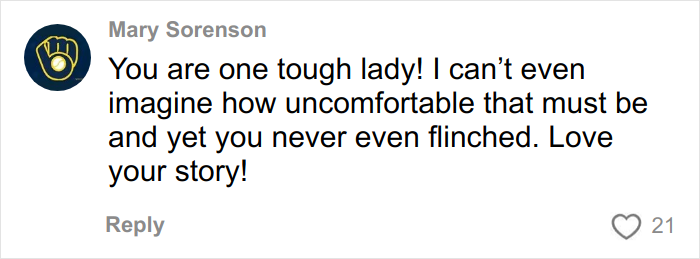



from Bored Panda https://ift.tt/ZzchwAR
via IFTTT source site : boredpanda